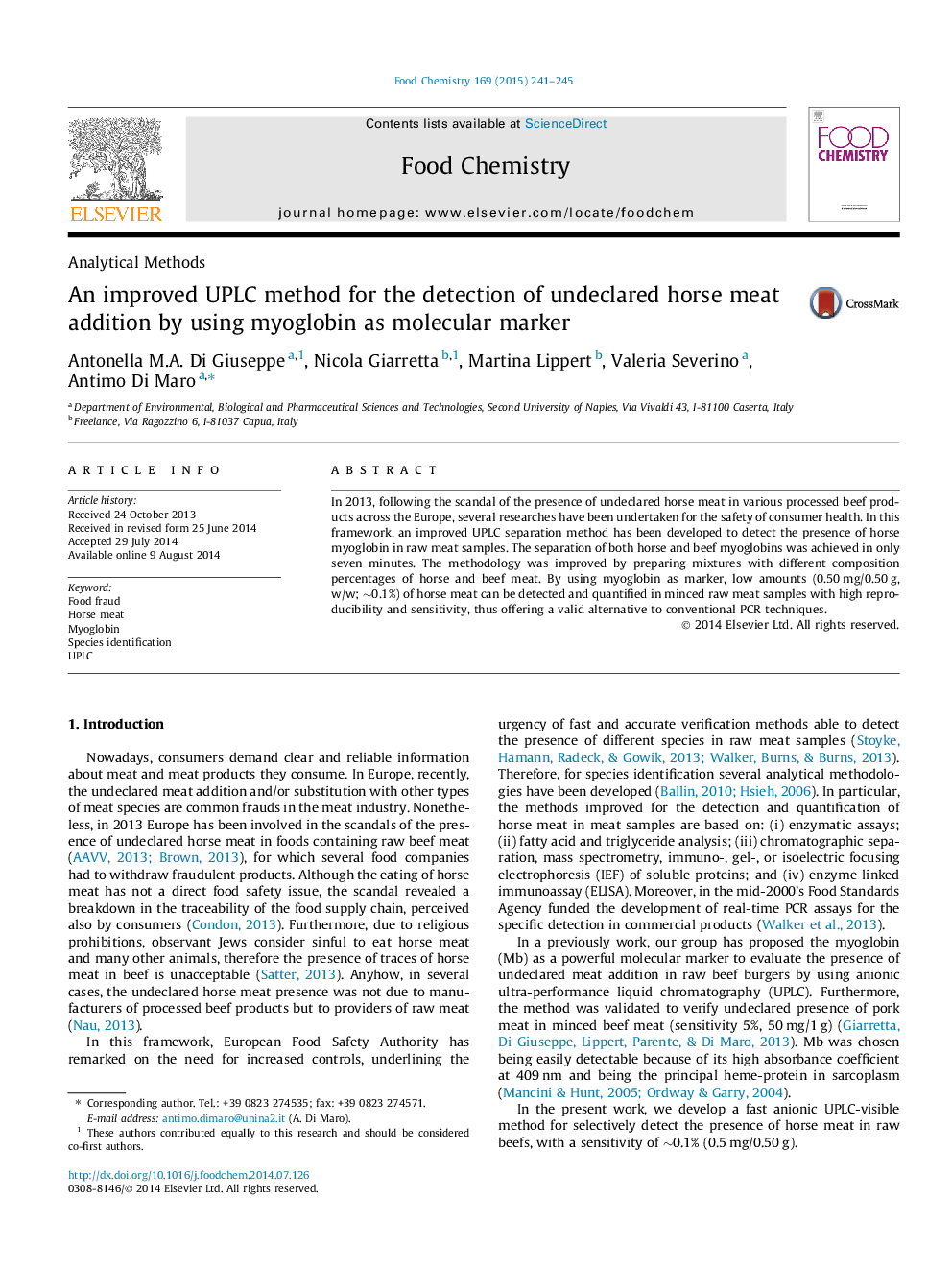| Article ID | Journal | Published Year | Pages | File Type |
|---|---|---|---|---|
| 7595354 | Food Chemistry | 2015 | 5 Pages |
Abstract
In 2013, following the scandal of the presence of undeclared horse meat in various processed beef products across the Europe, several researches have been undertaken for the safety of consumer health. In this framework, an improved UPLC separation method has been developed to detect the presence of horse myoglobin in raw meat samples. The separation of both horse and beef myoglobins was achieved in only seven minutes. The methodology was improved by preparing mixtures with different composition percentages of horse and beef meat. By using myoglobin as marker, low amounts (0.50Â mg/0.50Â g, w/w; â¼0.1%) of horse meat can be detected and quantified in minced raw meat samples with high reproducibility and sensitivity, thus offering a valid alternative to conventional PCR techniques.
Related Topics
Physical Sciences and Engineering
Chemistry
Analytical Chemistry
Authors
Antonella M.A. Di Giuseppe, Nicola Giarretta, Martina Lippert, Valeria Severino, Antimo Di Maro,
